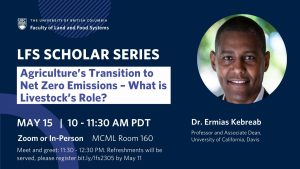Hello,
Please forward the following information to your graduate students:
The Centre for Teaching, Learning and Technology (CTLT) will be offering a Graduate Instructional Skills Workshop (ISW) on June 12, 14 & 16, 2023.
The Grad ISW is a 24-hour, fully participatory, and peer-based professional development workshop for graduate students that is beneficial to both new and experienced instructors.
Please note: You must attend all face-to-face sessions and complete all independent work for the complete duration of the workshop, (i.e. the entire 24-hour workshop).
To apply for the waitlist for June 12, 14 & 16, 2023 ISW click here: https://events.ctlt.ubc.ca/events/graduate-instructional-skills-workshop-june-12-14-16-2023-preliminary-application/
Application opens on April 28 at 9 am and closes on June 7, 2023 at 4:30 pm. By clicking this link, you are applying for the WAITLIST only and this DOES NOT register you for the workshop. Graduate ISWs at UBC are in high demand. To create an equitable registration process all graduate students who apply for an ISW will first be enrolled on a waitlist, from which participants are randomly selected. If a participant has applied for more than one ISW waitlist, their name will appear more frequently when generating the participant list, giving them a higher chance of being selected for an ISW. If you are accepted into the workshop, you will be contacted by our office to confirm your registration. For more information and a list of all upcoming sessions visit: http://ctlt.ubc.ca/gradisw
Workshop Eligibility:
A participant who wishes to take the Grad ISW is eligible if they are:
- a full-time or part-time registered graduate student at UBC during the academic term when the ISW is offered
- a graduate student at UBC who has completed degree requirements but has not yet convocated
- a joint degree graduate student who is enrolled at UBC and another institution
- a graduate student at UBC pursuing non-degree studies
- a visiting graduate student that is eligible to take courses
A participant who wishes to take the Grad ISW is not eligible if they are:
- not a graduate student at UBC
- a graduate student at UBC who has on-leave status
- a visiting graduate student that is not eligible to take courses
Elisa Herman
Event Coordinator
Centre for Teaching, Learning, and Technology
The University of British Columbia
